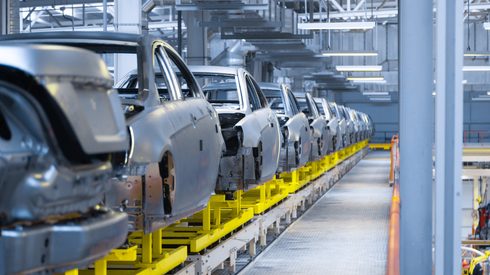India’s finance ministry said on Saturday, May 21 that it had imposed or increased export duties on iron ore and steel intermediates to increase the domestic availability of material.
This included a new 15% export duty on flat-rolled products of iron and non-alloy steel under HS codes 7208, 7209 and 7210, including non-coated and cold-rolled.
It also included new 15% export duties on hot-rolled bar and rod under HS codes 7213 and 7214, stainless flat steel under HS code 7219, stainless long steel under HS code 7222, as well as alloyed long steel under HS code 7227.
It also increased the export duty on iron ore to 50% from 30%, and imposed a new 45% export duty on iron ore pellets, and a new 15% export duty on pig iron.
The Ministry of Finance also removed the import duties on steelmaking raw materials anthracite, pulverized coal injection (PCI) material, coking coal, coke and semi-coke.
India’s exports to take hit
India had reported a record-high 13.5 million tonnes of steel exports in the 12 months from April 2021 to March 2022, according to customs data, with mills in the country offering competitive prices for flat steel in markets such as Vietnam and Europe, as well as semi-finished steel in markets such as North Africa.
Offers of Indian hot-rolled coil (HRC) to Northern Europe were heard around €950 ($1,002) per tonne cfr last week, undercutting those from Japan, South Korea and Taiwan at €970-980 per tonne cfr.
But sources said that the new duties would mean that Indian export offers would become too high for buyers, cutting them off from international markets.
“India used to be hot on prices, and linked closely to trends in the international steel market. Now we will no longer be in touch with international prices and will rely on local supply and demand factors,” a major India-based steel and scrap exporter told Fastmarkets on Monday.
“Inflation is high and the government wants to bring down prices but, after the announcement, steel mills are sad because the export market had been lucrative for them,” he said.
Prices for ingot in the Indian market dropped by 5,000 rupees ($64.20) per tonne on Monday compared with late last week, on the news of the export tariffs, the exporter source added.
A major Indian steelmaker source said on Monday that the duties would affect local Indian prices for steel, but that there was still a need to digest the rule changes before drawing further conclusions.
He noted that it was not yet known whether steel billet and slab would be affected by export duties, because neither product was mentioned in the government’s communication.
Effects on international prices
Export restrictions on Indian steel led to stronger sentiment in the Chinese steel market on Monday, leading some local pig iron producers to raise their prices, according to an industry source in Tangshan.
“This move is expected to offer support to international steel prices, but the direct effect on China’s market would be limited,” he said.
China’s major steel export markets do not overlap much with those from India, so the new Indian export duties will not create more opportunities for Chinese producers to export steel, an exporter in Shanghai said.
For instance, the major buyer of China’s hot-rolled bar and wire rod was South Korea, but Indian long steel producers typically go to other countries such as Singapore.
Loopholes for steel exports?
Indian steelmakers could try to find loopholes to bypass the steel export taxes, some sources said.
“This may include adding boron to steel products so that they can be exported without incurring export duties,” a trader source in Southeast Asia told Fastmarkets on Monday.
“Adding boron is not the final solution,” a seller source close to a major Indian steelmaker added. “Not all applications can accept boron-added steel. Production also needs to be tweaked to incorporate boron.”
Boron typically adds hardening properties to steel, depending on the type of steel and its carbon content, and is not suitable for load-bearing structures or for welding.
But the first Indian steelmaker and the scrap exporter rejected the notion of Indian mills looking for loopholes.
“These are wild ideas among traders. Indian steel manufacturers do not think in this way. Some people want to try and find shortcuts,” the mill source said.
“The government understands the steel business,” the scrap exporter said, “and I can’t imagine that many people will try to manipulate them. Mostly, steel exports will be cut off.”






